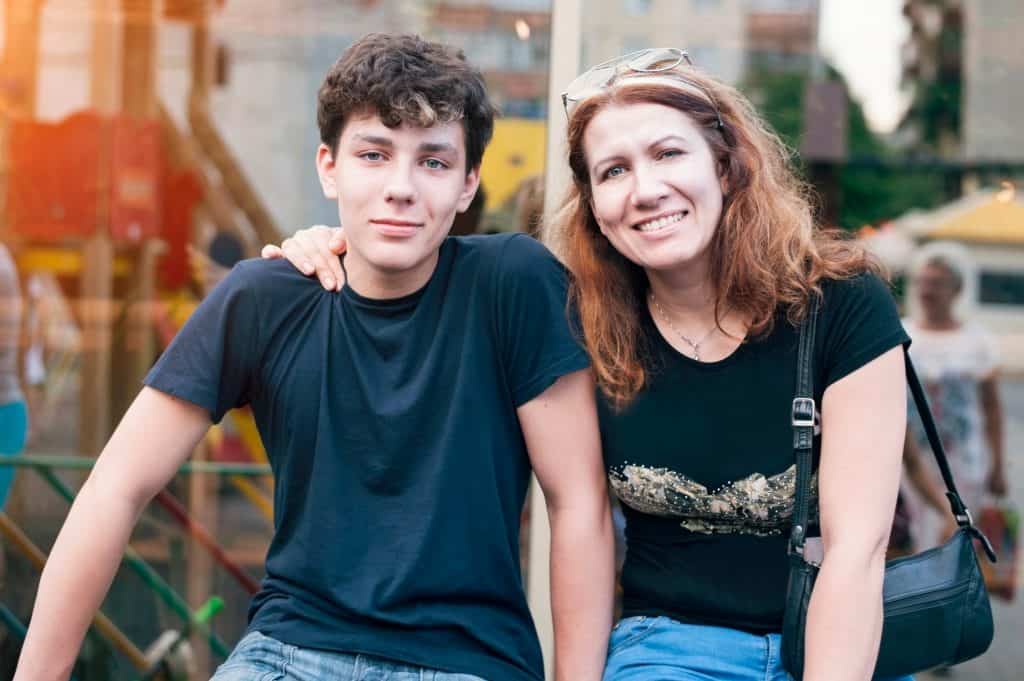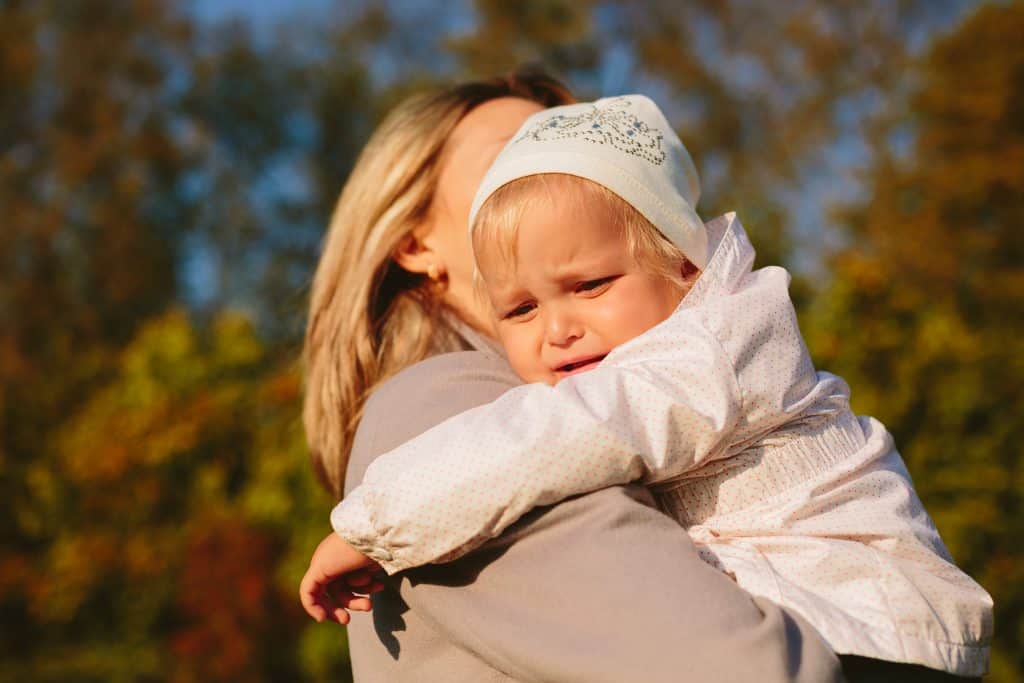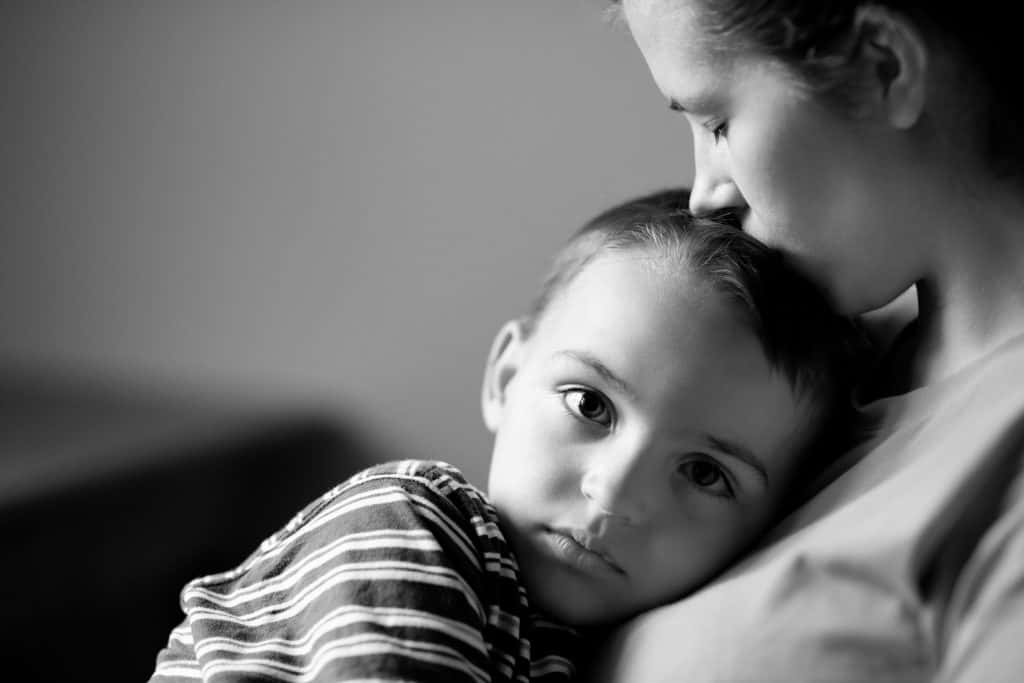Can parental kindness become stupidity?
Of course it can!
When you don’t get any sign of appreciation from your child, but you accept it, it’s no longer kindness, it’s idiocy!
Sorry to break it to you.
Maybe it hurts you.
Maybe it makes you angry.
But it’s true!
Obviously, as a parent, you don’t expect your child to buy you a gift every time you do something for them.
You don’t expect him to say, “Mom, you work hard for us, you deserve a rest, I’ll give you a foot massage”.
But as a parent, you should expect something in return.
That something is gratitude.
If you value yourself as a mom, it’s a must.
After all, no one has the right to take you for granted, not even your own child.
So if you’re not getting gratitude from your offspring, you’ve got a problem.

Perfect harmony looks like this: parents give out of love and children receive out of gratitude.
Then everyone’s happy, it’s a picture of harmony that fills everyone’s heart, tends to last and paints life in the most beautiful colors.
What do I mean when I say that children should be grateful?
I don’t think children should say “thank you” for every plate full, but that they should treat their parents in a way that radiates love and respect.
This shows that they’re aware of what they’re receiving and appreciate what they’re getting.
Gratitude is a feeling that indicates that we feel indebted to the person who has done something for us.
In no way does it mean that the child is inferior to the parents.
Nor does it mean that the child is forced to feel gratitude.
This feeling can be learned from an early age.
Of course, gratitude should not be shown at all costs.
What does this mean?
Quite simply, it’s important to steer clear of the idea that, as a sign of gratitude, children should live a life that suits their parents, or become a being that meets their parents’ expectations.
Such attitudes represent serious disruptions to a healthy relationship and have nothing to do with gratitude.
How can you teach gratitude to your children?

Teaching gratitude to children is an important skill that can have a positive impact on their overall well-being.
So it’s not just about improving your family relationship, but preparing them for adult life.
They shouldn’t think that everything will always be handed to them on a silver platter.
If your children are not aware of this, they will become ungrateful adults.
This will jeopardize their future friendships, professional relationships and love affairs.
Here are some ways to teach your children gratitude:
1. Set an example

As you know, children learn by observing.
So be sure to show gratitude in your own life.
Express gratitude for the things you have, say “thank you” to others and acknowledge the positive aspects of your life.
2. Encourage your child to keep a gratitude journal

At the end of each day, ask your child to write down three things for which he or she is grateful.
This can help him focus on the positive aspects of his life and develop the habit of gratitude.
In this way, it also helps him understand how much you do for him.
3. Show your child the power of the word “thank you”

Encourage your child to say “thank you” when someone does something nice for them.
Whether it’s a teacher, friend or family member, saying “thank you” can go a long way toward showing appreciation.
It’s a powerful word, because people appreciate it when their efforts are recognized.
4. Teach your child to reach out

Teach your child the importance of giving back to others.
Whether it’s volunteering at a local charity or donating toys to a children’s hospital, giving back can help your child develop empathy.
Plus, it will help him realize how lucky he is to have the life he does.
5. Encourage positive language

Help your child rephrase negative thoughts into positive ones.
For example, instead of saying “I hate green salad”, encourage him to say “I’m grateful for this healthy food that will help me grow strong”.
6. Make gratitude a daily practice

For example, at the dinner table, ask everyone to share one thing they’re grateful for that day.
This can help your child develop the habit of gratitude and appreciation.
Remember that teaching gratitude to children is an ongoing process.
So be a patient and consistent mom in your efforts and, over time, your child will develop a grateful mindset that will serve him well throughout his life.
Is your relationship with your child lacking in gratitude?

Are you in that situation where your child takes for granted everything you do for him or her?
If so, your family’s harmony is at risk.
Here are some behaviors that mean your child isn’t grateful:
- Your child compares you to other parents who he thinks are better.
- Your child pressures you for more money.
- Your child uses words like “you gave birth to me, so you have to,” or “it’s your obligation”.
- Your child doesn’t take care of his things, spends easily and expects a lot from you
- He thinks the best piece of meat is his right, not a nice parental gesture.
- He doesn’t take into account whether there’s any dinner left over for Dad, who’s the last one home.
- Your child doesn’t care if Mom wears the same shoes with a worn-out heel for the fifth season, and expects you to buy him his fourth pair of sneakers of the month.
How do you manage this delicate situation?

In this situation, balance can only be restored in one way: the parent must stop “giving” and insist that everything in life has to be earned.
Some things are earned through hard work, others through good deeds.
If you feel that your child is taking you for granted, behaving arrogantly, using your things as if they were his own, don’t hesitate: take it all back!
It’s time to insist on reciprocity!
A balance between giving and receiving.
You should only give to your children if there’s a reciprocal relationship.

You’ve made lunch for them, they should say something nice to you and clear the plates.
Is this a somewhat selfish attitude?
Absolutely not!
It’s the best thing you can do not only for your child, but also for yourself.
Otherwise, your relationship will become increasingly strained.
You’ll lose your sense of satisfaction in your role as a parent and start to see yourself as a doormat.
What’s more, your child will lose the chance to become a good, noble and loving person.
But why do some parents accept this treatment?

The most common cause is a feeling of guilt or inadequacy, which leads parents to a situation where they don’t value themselves and then accept being treated with contempt.
But nobody deserves that.
Reciprocity in giving and receiving is always very important.
Otherwise, the beauty of the gift is lost, the will to persevere over the long term declines, kindness turns into stupidity, a sacrifice out of love turns into a sacrifice out of weakness, and everything is turned upside down.
Then the bright side of life’s noblest role, parenthood, becomes hidden from all those who witness such an unhealthy situation.
Don’t let yourself be trampled and humiliated in your most beautiful role.

